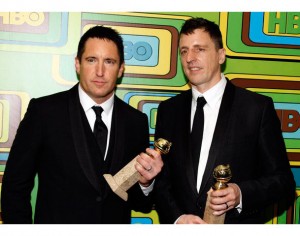Importance of scores and soundtracks often overlooked
Imagine Inception or The Social Network without a soundtrack.
Inception would be a slow-moving, boring film with too many Leonardo DiCaprio close-ups, and Jesse Eisenberg and Co.’s fast-paced whines would be much more audible, and thus annoying, in The Social Network. 
Both of those movies feature intense, prominent and well utilized scores, and both were successful films.
Ever since the invention of feature-length movies, music has played a prominent role in film.
Compelling scores kept people interested during the silent film era, and that trend ultimately carried over into talkies, despite the ability to utilize dialogue.
Scores and musical soundtracks have been, and almost always are, integral to the movie-watching experience, but they’re often overlooked.
There are many cinema fans who appreciate the sound in film and understand the effort that goes into creating and integrating a good soundtrack, but the common moviegoer likely doesn’t even notice the music.
That’s the goal of a score: to blend into the background while still achieving the necessary effect.
This might not be a revolutionary statement, but classical music makes everything significantly more dramatic.
Filmmakers know this, and use it to their advantage to heighten the intensity and drama in their films.
I recently experienced the power of classical music firsthand while at Bovard Auditorium, watching a classical orchestra rehearse.
As with every time I hear classical music, I zoned out and started thinking about other things, namely how much I can’t stand classical music.
Not to criticize the musicians, as they all were extremely talented, but I simply don’t have the attention span to listen to the genre on a regular basis.
After the orchestral rehearsal picked up in intensity, I had a sudden revelation: Classical music is boring, but it also makes everything riveting.
I would check my phone during the performance and read a typical text such as “Yeah” or “Will, you’re so cool!” just as the strings and timpani drums played a powerful hit.
The combination of loud orchestral classical music and human action (however petty that action was) made me feel like I was listening to something akin to Gandalf battling the Balrog.
Nerdy references aside, the point is still that classical music always add intensity.
After Inception’s release last summer, viral videos started appearing on the Internet with titles along the lines of “Inception Music Makes Everything Epic.”
The premise was simple, much like my experience watching the orchestra rehearse at Bovard.
Any ordinary event or action is greatly dramatized when a strong score is played in the background.
The series of videos included short clips of people doing everything from throwing a jar of peanut butter to each other to relieving themselves on the toilet, but they got the point across.
Music from Inception and other classical music scores really do make everything intense.
Classical music, however, is not the only style used by filmmakers for dramatic effect.
The Social Network and Tron: Legacy both included electronic music scores masterfully created by popular musicians Trent Reznor from Nine Inch Nails and Daft Punk, respectively.
The Social Network won the Academy Award for Best Film Score while Tron ended up being a terrible waste of money and effort, but both demonstrated films do not need orchestras for added theatrical effect. As long as there’s some sort of instrumental score, a film feels even more dramatic.
If the recent success of both The Social Network and Tron: Legacy soundtracks and the wide variety of Inception soundtrack-parodying viral videos prove anything, it’s that casual movie fans are beginning to better appreciate the use of scores in film, no matter the genre.
Will Hagle is a sophomore majoring in narrative studies. His column, “Feedback,” runs Wednesdays.
